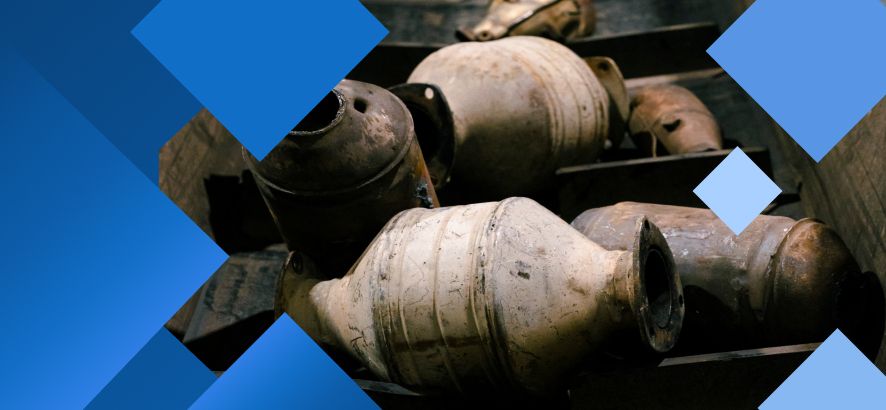Processing Knowledge
Expert Tips for Catalytic Converter Processing & Handling

With more than 25 years of experience in catalytic converter processing, PMR’s experts have the expertise and insider knowledge needed to thrive. In an industry subject to frequent change, having access to valuable information empowers catalytic converter recycling businesses to make the right decisions. Here are 4 expert tips for handling and processing your catalytic converters.
Follow the Metal Market
In the catalytic converter processing industry, it’s important to know the precious metal content of your material. For example, converters from truck salvages are primarily platinum-based, with 30%-40% palladium and no rhodium, while yards that purchase older-model vehicles will acquire converters with more palladium. Each of these recyclers should follow the precious metal market to ensure they get the most out of their specific converters.
Dismantle Material Properly
Properly dismantling a converter for processing will ensure it keeps its value. The value of a converter is compromised when the converter biscuit is damaged or broken by aggressive dismantling or improper cutting. A Honda converter worth $800 can depreciate to $600 if just a quarter of the unit (equivalent to 1 pound or less of material) is damaged.
If more than 8% of your load is made up of partials—that is, partially full units—this could mean that your dismantling techniques need improvement. To avoid damaged converters and lost profits, cut & dismantle carefully.
Something else to keep in mind: trim any pipe closer to the converter shell, allowing you to stack more converters into a shipment box.
Oxygen Sensors
Another way to maximize your profits during dismantling is to pull your oxygen sensors. Buyers and processors will pay between $4 and $6 per pound of O2 sensors; roughly six O2 sensors are all you need to reach one pound. Start collecting O2 sensors to get the most out of the dismantling process!
Know Your Count
Having a running count of your converters is extremely important for maintaining inventory and tracking your shipments. With an accurate converter count, some buyers/processors will allow you to hedge your material before shipping, which can mean securing higher rates.
Working with a processor that helps you factor in full versus partially-full units will also help you keep more precise inventory counts.
How to Manage Converter Inventory
An easy way to keep track of your converter count is by using a count system—it can be as simple as adding tally marks to your gaylord boxes. But marking boxes can be hard to keep up with and can get confusing when trying to keep a record of your inventory. That’s the value of working with a processor that gives you access to lot tracking and inventory management tools, since these can help you keep an accurate record of your material. This way, you’ll know exactly what has been sent to processing and what’s still at your facility.
Assay Is a Must!
During catalytic converter processing, assaying gets you between 10% and 30% more for your material than if you had sold per unit. With assay, you are accessing your material’s true value, with cutting-edge technology that proves your material’s worth.
Another benefit of assaying is that it allows you to take advantage of a high market and hedge your prices quickly and confidently. Make sure your processor has a quick turnaround rate so you can react to the market and get the most value from your catalytic converters.
Moving Forward
Investing time in converter processing will do wonders for your bottom line. Converter recycling is highly profitable when you work with a catalytic converter processor that offers extensive evaluation and monitoring tools, data, and insights.
Having the right information is the first step towards a more profitable business. Visit PMR’s Resource Center for more information on the catalytic converter processing industry.


